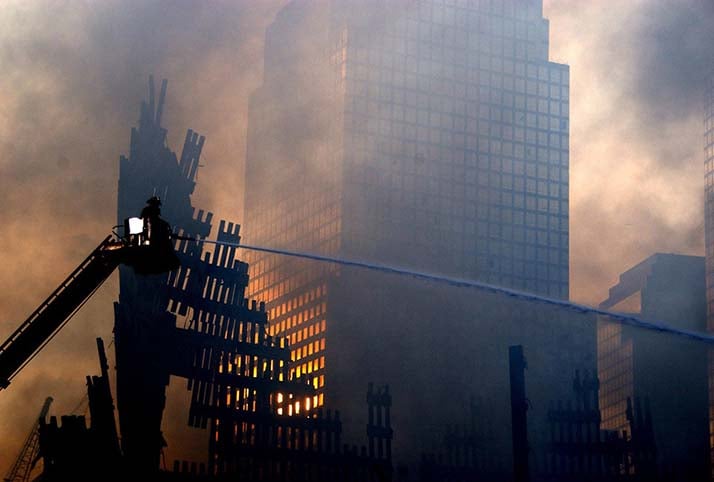More than a month has passed since the anniversary now, and I am not yet calm about it. And, yes, it was almost a quarter century ago.
The normal thing to do, I’m reminded each fall, is to move on. Not to forget it altogether, perhaps, though clearly that is the path many of the normal people around me have taken. But perhaps I should leave it in the past and stop thinking about it.
That is the normal thing to do.
I am not normal.
I consider it part of the reason I am here. I want to keep this wound from ever completely healing, because to heal it in the terms of the normal people means forgetting about what was done to us by our enemies.
I am going to pick at the scab as long as I am here. I don’t care if some people don’t like that or consider it uncouth or obsessive or angry. For I am uncouth and obsessive and angry about this. Still.
Any time I sense that I might be moving on, all I have to do is think of this man in the image above, and others like him, including the person witnessed by onlookers in this video, and it’s like it just happened.
After the planes hit, amidst the chaos, as a Muzak version of a Bee Gees song played surreally on the Towers’ speaker system, many people were trapped—none of whom had done anything to merit this abrupt transformation of their trajectory on earth and all of whom were immediately faced with a new reality.
Some made a portentous decision.
Instead of staying in the building to die of smoke inhalation and fire, they chose to go to the windows and to attempt the absurd.
To climb down the face of a skyscraper from 80 stories up.
Even to say that takes your breath away.
There was of course no possibility that they could make it safely down. To choose this path was to choose to die, certainly, but that was the terminal point of the other path given as well.
Better to feel the fresh fall air in your lungs one more time, to tearfully bid farewell to the sun, and, for a few seconds, to be free from the smoking cage of death those demonic entities in the guise of humans flying those planes intended for you.
I will never, ever, forget these people, and I will never, ever, forgive those who did this to them.
I will stop feeling this way when I am dead. Not before.
That I will not forgive perhaps represents a moral failing in me, I know. An inability to live up to the ethic my faith demands of me.
I accept the failing. I am not going to change my mind about this. Forgive me, God, but I am not made that way.
I take some comfort in my view from Aquinas, who argued that the righteous in Heaven will be able to see the damned in Hell and the sight of their deserved suffering will reinforce the joy of the elect who benefit from the righteousness of God’s judgment.
I am not in Heaven at present, although I hope one day to be there. Yet, even now, I derive substantial pleasure from thinking of Osama bin Laden and all those he put on those planes burning in a pit of molten fire forever, never to be permitted to expire, but instead to feel the unparalleled agony of their flesh in flames unendingly.
I can acknowledge that forgiveness, when it is real and not merely a self-righteous pose, can be noble, but I am incapable of it myself in this case. I do not forgive this, and I will never forgive this.
You do not do something like this to my people and expect me ever to get over it.
Speaking of forgiveness as a pose, I have a specific example in mind.
Once, many years ago, I gave a talk for an academic audience (almost entirely faculty members) about some of the research I did for the book I wrote on United 93. When I described the chapel that had been created by an area priest in honor of the passengers and crew on the plane, one of the people in attendance—a female professor—asked me if the chapel encouraged those who visited to forgive the hijackers. She prefaced her question with remarks that made her contempt for the kind of people who might be motivated to go to such a place impossible to ignore.
My professional training was sufficient to restrict my response to a curt “No, it does not,” and then to move on to another questioner.
What I wanted to say to her was this:
No, it does not, and I am frankly gladdened by that because it shows that the spirit that infuses that place is the same that lives in my heart. You and I could not be more different. You see, when I think of that event, all my sympathies go toward the victims, and I have none left for their murderers. I have no interest whatsoever in forgiving those emissaries of Hell. I would see the hijackers burned in effigy every hour on the hour there at the Chapel, and I would revel in the sight. Every time I enter that building, I mentally curse their names and the very fact of their existence on earth. I am profoundly saddened that their deaths were likely quick and painless. My most fervent prayers are that they are right now suffering the unspeakable agonies of Hell and that this will be their lot for eternity. Do you understand?

Leave a Reply